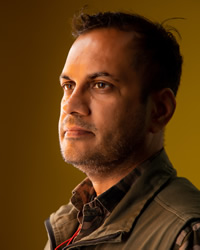Indian, English-speaking in Singapore

Photo Source:
Anilsharma26 - Pixabay
|
Send Joshua Project a map of this people group.
|
| People Name: | Indian, English-speaking |
| Country: | Singapore |
| 10/40 Window: | No |
| Population: | 77,000 |
| World Population: | 577,000 |
| Primary Language: | English |
| Primary Religion: | Hinduism |
| Christian Adherents: | 8.00 % |
| Evangelicals: | 2.00 % |
| Scripture: | Complete Bible |
| Ministry Resources: | Yes |
| Jesus Film: | Yes |
| Audio Recordings: | Yes |
| People Cluster: | South Asia - other |
| Affinity Bloc: | South Asian Peoples |
| Progress Level: |
|
Introduction / History
Singapore is an island nation located at the end of the Malay Peninsula in Southeast Asia. It was founded in 1819 as a trading post and port for the British Empire. Many laborers from India were brough in during the 19th and early 20th centuries to work on the rubber and pepper plantations. Singapore suffered considered damage from the Japanese occupation in WWII. It became independent from Britain in 1963 and in 1965 from neighboring Malaysia. Singapore has one of the highest standards of living in the world. It is a multi-racial state with four official languages, English, Mandarin, Malay, and Tamil. Many of the citizens whose ancestors came from India now use English as their primary language.
What Are Their Lives Like?
Singapore has a highly developed market economy. The leading sources of income include finance, shipping, oil refining, chemicals and semi-conductors. Another industry is "medical tourism." People come from all over the world to have surgeries and benefit from Singapore modern hospitals and highly trained physicians. The English-speaking people of Indian descent enjoy of blessings of modern society. Education and medical care are provided by the government. Indians make up about 10% of the Singapore population. They serve as professionals, university professors, bankers, owners and managers of businesses. Marriage to one spouse is the norm for Indians in Singapore. Parents encourage their children to obtain college degrees. The culture of the Indians is varied depending upon what part of India the people are from. For example, the Tamils of South India have a much different cuisine and culture than the Punjabis of northern India or the Bengalis of eastern India. All of Singapore businesses and schools are conducted in English. Parents may choose for their children to attend "second language schools" so their original family language and culture are not lost.
What Are Their Beliefs?
The majority of the English-speaking Indian people of Singapore consider themselves to be Hindus. They worship and serve the gods of the Hindu pantheon. Hindus believe that by performing rituals and good works that they will attain moksha or freedom from the endless cycle of birth, death and rebirth. They visit Hindu temples and offer prayers, food, flowers, and incense to their gods in hope of gaining protection and benefits. Hindus do not have a personal or familial relationship with their gods like Christians do with their heavenly Father. There are many forms of Hinduism, each with its own deities and beliefs. The main yearly holidays of the Hindu people are Holi, the festival of colors and the start of spring, Diwali, the festival of lights, Navratri, the celebration of autumn and Rama Navami, Rama's birthday. Only a tiny fraction of Indians in Singapore are evangelical Christians.
What Are Their Needs?
The Hindus of Singapore need to understand that Jesus is not another god or guru. He is the only Son of the one, true God. They must come to see that their material prosperity will not meet their deepest spiritual needs.
Prayer Points
Pray that believers in Singapore will reach out and share the good news with their Hindu neighbors. Pray that the Spirit produces a hunger for biblical truth in the leaders of the Hindu community in Singapore. Ask the Lord to raise up a Disciple Making Movement among the English speaking Indians of Singapore in this decade.